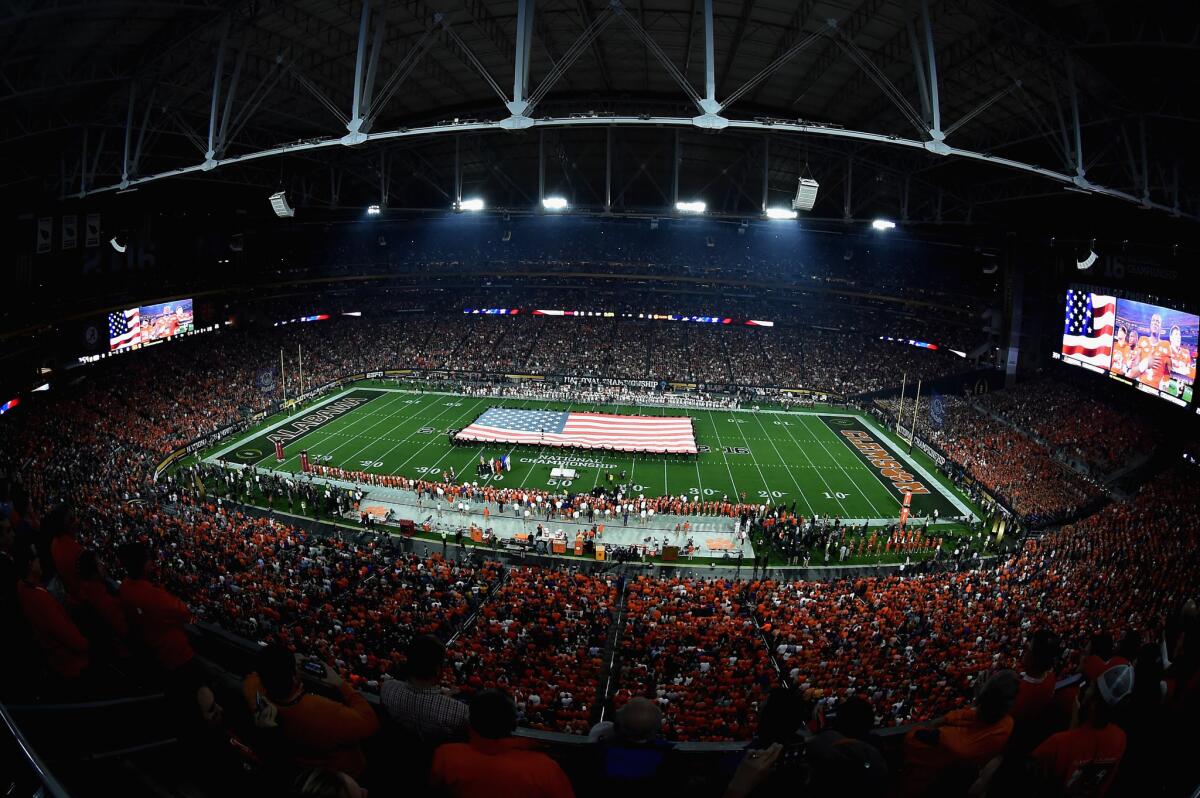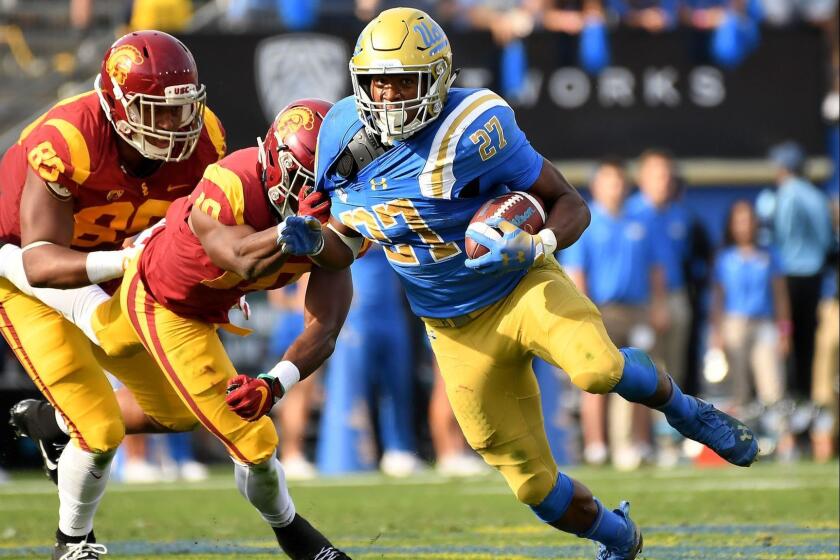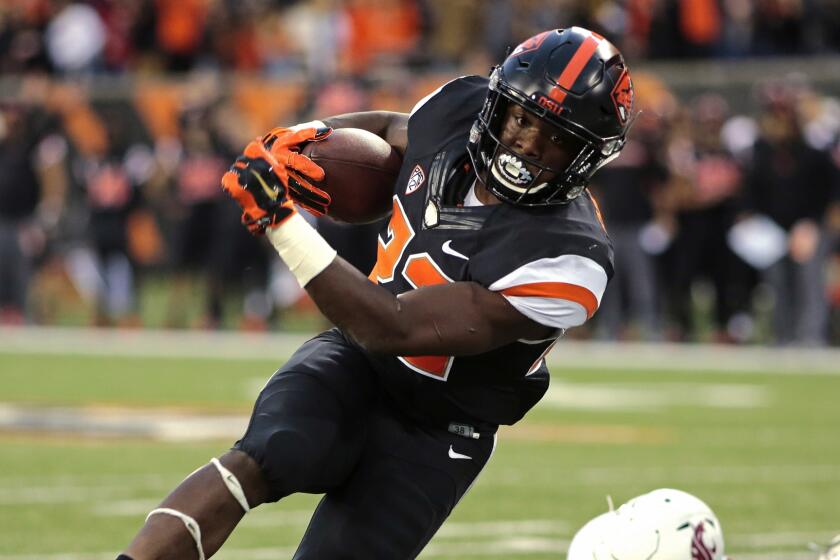A kid who never outgrew his love for college football got the best job in the world

Singer Ciara sings the national anthem prior to the start of the 2016 College Football Playoff championship game.
- Share via
The college football-obsessed kid from the Deep South is still here. He wakes up hours earlier than usual on fall Saturdays, slips on his favorite jersey, flips to the morning banter between Lee Corso and Kirk Herbstreit and plans out which games will stream on screens one, two and three during the day’s four time slots.
The kid continues to actively manipulate his family’s schedule around the pomp and pageantry shown off in stadiums across the country, and the only difference between now and then is that today it’s a wife and 2-year-old daughter whose weekend plans are asked to fall in line instead of pigskin-weary parents.
Actually, there’s another big change afoot as we enter this fall: The kid is now a mid-career sportswriter walking into a dream job: national college football reporter at the Los Angeles Times.
But the 13-year-old who spent cross-country road trips forcing his dad to pose as Steve Spurrier and Bobby Bowden for pretend news conferences, who started his own website to release his own top 25 and analyze games, now has much more important questions to ask of the sport he loves than which teams can challenge Alabama and Clemson (although, as part of our 25 storylines for 2019, we will address that one too.)
College football can be so good, but we know it can be better. I know I’m not the only diehard who feels that conflict every Saturday — or at least has to push it down to get the same enjoyment out of this game that has become a part of my identity over so many years.
The UCLA Bruins are coming off a 3-9 season that was the school’s worst since 1971. Here are five questions they will try to answer during training camp.
The kid watched a legend like Nebraska quarterback Tommie Frazier torment defenses in the Cornhuskers’ triple-option attack and now remembers what it was like when Frazier danced around the Florida Gators on his way to one of the greatest touchdown runs in college football history and the 1995 national championship. Magic.
The journalist, however, wonders how much better Frazier’s post-football life could have been if he had the ability to profit from the fame he earned as one of the best players of the 1990s, just how much money he could have made from the use of his name, image and likeness around towns like Lincoln and Omaha and nationally before a blood clot issue kept him from having a pro career.
The journalist wonders how many hits to the head Frazier sustained over the course of four years at Nebraska, faking that ball to the fullback up the middle and hurling himself around the edge into the domain of hungry linebackers and safeties.
We simply know too much now, and there are a lot more men out there like Frazier, who gave themselves to their universities and didn’t get as much to show for it as they could have, than there are men as fortunate as Donovan McNabb, who got to sell chunky chicken soup long after his Syracuse career came to a close.
More football players from the Southland are passing on USC and UCLA and establishing themselves at other Pac-12 programs.
This introduction is not meant to preach but to give an idea of the prism from which my words will be coming as we take in another glorious college football season.
I am not a journalist who believes the colleges and universities that make up the NCAA have given the players nothing. To the contrary, I believe college football scholarships have been one of the most influential catalysts for social mobility in our country’s history short of joining the armed forces.
That doesn’t mean the sport can’t also be governed by a just set of rules and respect the right of a person to benefit from his talent beyond his education.
It’s tough to watch, because I so deeply care about college football, and I don’t think it would be that hard for us to have all of the good stuff and none of the queasy, cringe-worthy nonsense.
Time, of course, will tell the story. I can’t wait to get started, straddling the line between the kid with the three screens going at a time and the journalist charged with explaining exactly what it is we’re watching.
More to Read
Go beyond the scoreboard
Get the latest on L.A.'s teams in the daily Sports Report newsletter.
You may occasionally receive promotional content from the Los Angeles Times.













